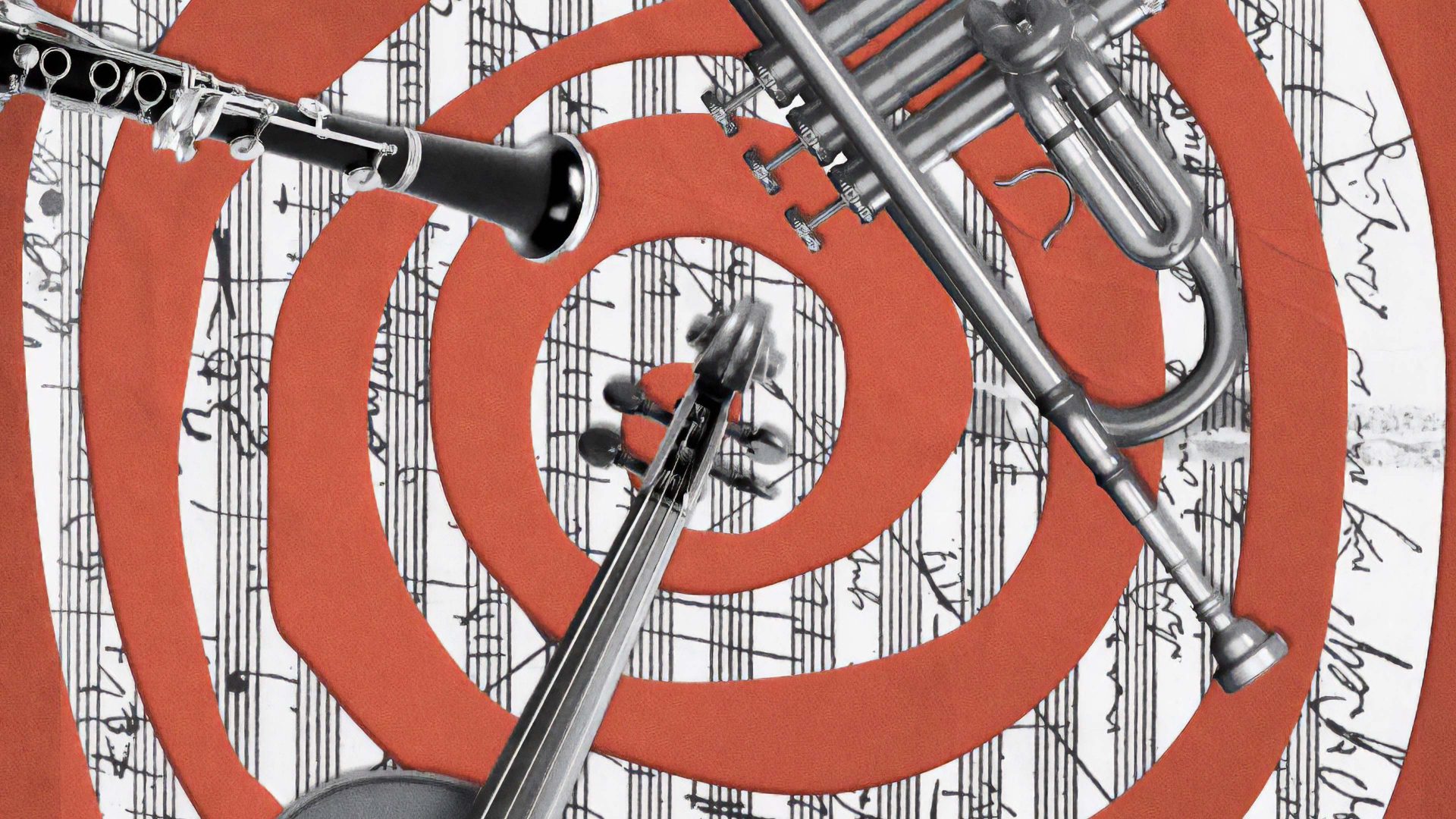You could easily mistake it for an English seaside town on a coronation bank holiday. Union Jack bunting flutters between the grey stone buildings. Cucumber sandwiches are served at tea parties. People are having their photos taken next to mocked-up Doctor Who police boxes, and lifesize cut-outs of beefeaters (and of Hugh Grant).
Yet the balmy weather and the spotless streets might just spoil the illusion – not to mention the fact that everyone is speaking French. In fact, all this pro-British paraphernalia is located in Dinard in Brittany, an elegant coastal beauty spot that hosts an annual Festival du Film Britannique.
Oui, you read that correctly: for five days at the end of every summer, there is a French festival devoted to British cinema. This year’s is the 34th edition, and yet the institution still takes some getting used to. As a Brit, you can’t help asking why the nation of Godard and Deneuve should be celebrating our stuff.
But to the people of Dinard, it all seems perfectly natural. The festival’s logo – a silhouette of Alfred Hitchcock’s portly profile – is in every shop window. Overlooking the crescent beach is a statue of Hitchcock with a seagull on each shoulder; the genuine seagull droppings add a nice touch of verisimilitude. And if Hitch were to step down from his pedestal, he could stroll up the tapis rouge to the snazzy Palais des Arts et du Festival, where cinephiles queue for 103 film screenings, plus short films, talks, masterclasses and more.
Jonathan Glazer’s stunning meditation on Auschwitz, The Zone of Interest, is getting a gala screening. Carol Morley is being honoured with a retrospective of the films she has written and directed, including Dreams of a Life, The Falling, and her latest work, Typist Artist Pirate King. Mark Cousins is here to push a documentary about the festival’s patron saint, My Name Is Alfred Hitchcock. Barnaby Thompson is in attendance with a documentary about another quintessential Englishman, Mad About the Boy: The Noël Coward Story. A third documentary, Cannes Uncut, is a British film about a French festival, so it’s an appropriate pick for a French festival about British film.
Many of the visiting film-makers I speak to have never been to Dinard before, and can’t quite believe it exists. “It’s like a fabrication,” says Carol Morley. “It doesn’t feel real.” The occasion is a welcome soirée in a splendid old hotel, where the manager croons Nat King Cole standards with a jazz band, and where one civic dignitary pays tribute to Morley. “We are delighted to have you here,” he says, “because we had never heard of you before.”
The odd faux pas aside, the generosity and warmth that radiate from Dinard make you wonder if the residents are aware of how jingoistic the UK’s politics have been in recent years. The president of the competition jury is a French actress, Catherine Frot, who praises the “gravité, drôlerie et humanité” of British films at the opening ceremony. Arnaud Salmon, Dinard’s mayor, declares: “We are proud to carry the British colours throughout the festival and, above all, proud of our long-standing friendship.” Vincent Remy, the Deputy for Culture sees the Festival as “an opportunity for greater understanding between our two nations and our two societies”.
Ask yourself: how many British elected officials would be willing to put their names to the equivalent sentiments? My suspicion is that they’d be afraid of being lynched by their constituents. And consider this: in the weeks leading up to the festival, 10,000 schoolchildren and students are taken to screenings of British films. Can you imagine any council in Britain paying to send that many youngsters to see French films? I can’t. But somehow, even after everything our current government has said about France, Dinard is willing, literally and figuratively, to fly the flag for our cinema.
“It is considered the most British of French towns,” points out the Festival’s artistic director, Dominique Green, a Londoner whose mother was French. Brits began building turreted villas along the cliff tops here in the 1800s. At the other end of the beach from the Hitchcock statue there is a plaque dating from 1936, commemorating the centenary of the arrival of the first rosbifs. The Anglo-French connection is still evident in the architecture, pubs, societies and churches – not that the term “Anglo” is wholly apt. The week after the film festival, Dinard has a gathering of Scottish pipe bands.
But the Festival du Film Britannique is the city’s signature event. It started life in 1989 as a golf tournament between British and French producers, with a small programme of screenings attached. “This was the golden age of British-French co-production,” says Green, “so it was important for producers to meet in person, and for European distributors to see new British films.” The UK’s independent cinema was on a high, too, with a wave of “successful and accessible” films coming to Dinard in the years that followed. Danny Boyle’s debut, Shallow Grave, was shown here in 1994, where it won the top prize, the Golden Hitchcock. Boyle and the producer, Andrew Macdonald, celebrated by playing football with local boys on the beach.
Nowadays, Dinard is less focused on business matters. Distributors can see films via Vimeo links rather than travelling, after all, and they can have their face-to-face meetings on Zoom. The festival has also suffered from the impact of Covid (“We have a fairly elderly population here,” notes Green), and Brexit led to the closure of the airport, making the journey from the UK more complicated. But Dinard still has a valuable part to play in publicising British films in France, as well as keeping the town itself on the cultural map. Ticket sales increased by 40% from last year to this.
A key factor is that France is “a huge cinema-going nation”, says Green, with a long-standing respect for arthouse fare which isn’t shared across the Channel. “The films of Ken Loach and Mike Leigh perform much better in France than they do in the UK,” she says. “One of Leigh’s films made more in its opening weekend in France than in its entire run in the UK.”
In fact, one of Green’s trickiest jobs is to convince the French that there is more to British cinema than Loach, Leigh, and “social issues”. But there is no doubt that the spirits of Loach and Leigh are still here – and not just because Leigh’s son Leo has a film in the programme, Sweet Sue, as does Loach himself. The Old Oak, which premiered at Cannes in May, is about a coachload of Syrian refugees moving into a rundown former mining town in 2016 – and you don’t get much more Loachy than that.
But even the films in Dinard which owe the most to Leigh and Loach have their own modern sensibility. Thanks to the BFI and the BBC’s measures to promote diversity, says Green, British cinema is now more representative of contemporary society than French cinema is. That’s one reason why French cineastes admire it.
One of the six films in the main competition, The Effects of Lying, is a dysfunctional family farce in the Leigh tradition, but the family in question is British South-Asian. Three other films in competition boast the kind of working-class social realism pioneered by Loach, but they are all made by female writer-directors, and they all revolve around underprivileged young women or girls who are struggling to move beyond a trauma.
Adura Onashile’s Girl is a dreamlike coming-of-age fable in which an immigrant mother (Déborah Lukumuena) and her 11-year-old daughter (Le’Shantey Bonsu) hide from the world in a Glasgow tower block. In Charlotte Regan’s Scrapper, a 12-year-old (Lola Campbell) is resourceful enough to manage on her own after her mother dies, her stresses balanced by humour, hope, and Danny Boyle-ish magic realism.
Sacha Polak’s Silver Haze manages to pack in a year’s worth of soap opera plotlines, including arson, stabbing, an eating disorder, terminal cancer – as well as sudden conversions to both lesbianism and Islam. One French woman in the audience, a retired English teacher, tells me that she comes to the festival because she loves to hear the English language being spoken – and in Silver Haze much of that language consists of swearing. But the film bursts with authenticity, poetry, energy and heart. On Saturday evening, it was awarded the Golden Hitchcock.
Not every film in Dinard reaches such a high standard. But when you see enough of the good ones with an appreciative French audience, you may end up agreeing that British cinema does indeed have “gravité, drôlerie et humanité” – or at least a certain je ne sais quoi.
It’s a strange sensation. How long has it been since you felt that another European country was fond of Britain? And how long has it been since you felt that Britain might actually merit that fondness? I doubt I’ll have either of those feelings again until I’m back in Dinard.



